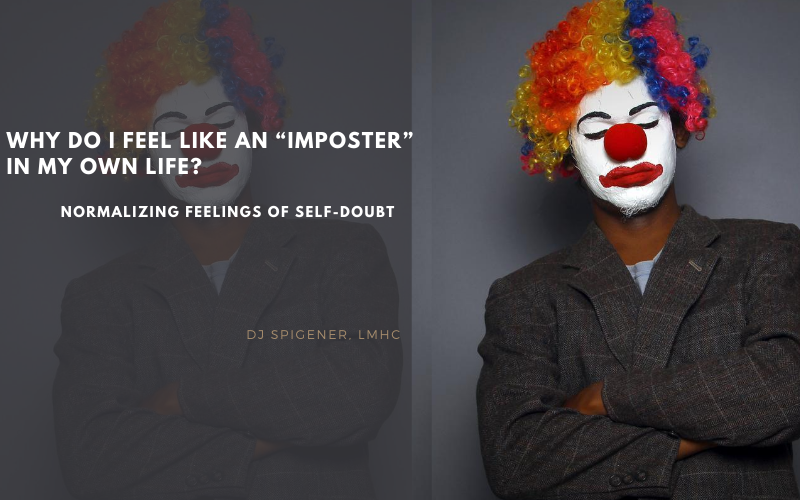– DJ Spigener, MA, LMHC
Self-esteem is a major topic in psychotherapeutic treatment. The internal image we each hold of ourselves is vitally important to our mental health and overall wellness.
If we see ourselves as generally successful, accomplished, capable, and stable, our emotions (i.e. feelings of pride, satisfaction, validation, and confidence) and our actions (i.e. being open to facing new personal, academic, or career challenges) typically fall in line with that overall positive core self-image.
However, if we see ourselves as a failure, as unintelligent, or as a “broken” person, our emotions (i.e. feelings of sadness, hopelessness, self-hatred, and lack of confidence in self) and our actions (i.e. refusing to push ourselves out of our personal “comfort zone”, being unwilling to pursue opportunities for greater success or responsibility, or not pursuing meaningful relationships due to feeling like a burden to others) typically fall in line with that highly negative core self-image.
As this is a personal issue which many struggle with, the informal phrase “Imposter Syndrome” has been developed in order to describe this phenomenon. Basically, Imposter Syndrome describes a long-term feeling of chronic self-doubt which persists despite evidence of our personal successes and the challenges we have overcome. What many of us may not realize, however, is just how common these irrational thoughts and associated feelings of self-doubt truly are! In fact, many of the most successful and accomplished public figures in history have spoken about their own struggles with this issue. Here are a few you may recognize:
- “You think, ‘Why would anyone want to see me again in a movie?’ And I don’t know how to act anyway, so why am I doing this?” —Meryl Streep
- “I have written 11 books, but each time I think, ‘Uh oh, they’re going to find out now. I’ve run a game on everybody, and they’re going to find me out.’” —Maya Angelou
- “I still doubt myself every single day. What people believe is my self-confidence is actually my reaction to fear.”—Will Smith
- “Have I ever doubted myself? Have I ever not? I feel self-doubt whether I’m doing something hard or easy.” – Sigourney Weaver
- On winning an Oscar for her role in The Accused: “I thought it was a big fluke. The same way when I walked on the campus at Yale, I thought everybody would find out, and then they’d take the Oscar back. – Jodie Foster
- “No matter what we’ve done, there comes a point where you think, ‘How did I get here? When are they going to discover that I am, in fact, a fraud and take everything away from me?’” – Tom Hanks
After reading the words of famous, world-renowned figures who still struggle with self-doubt in spite of their incredible accomplishments, have your feelings changed at all? My hope is that their words may help to normalize these feelings, and to remind us all that self-doubt is part of being human.
If you are interested in learning more about the phenomenon of “Imposter Syndrome”, or about specific methods for overcoming chronic feelings of self-doubt which may be holding you back from personal or professional goals, please consider reaching out to Total Health Guidance to set up an initial session with one of professional counselors.







